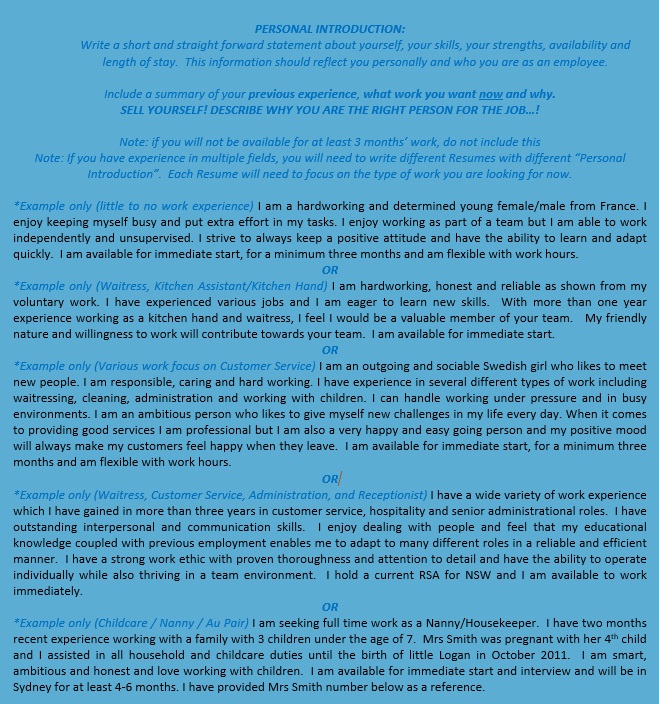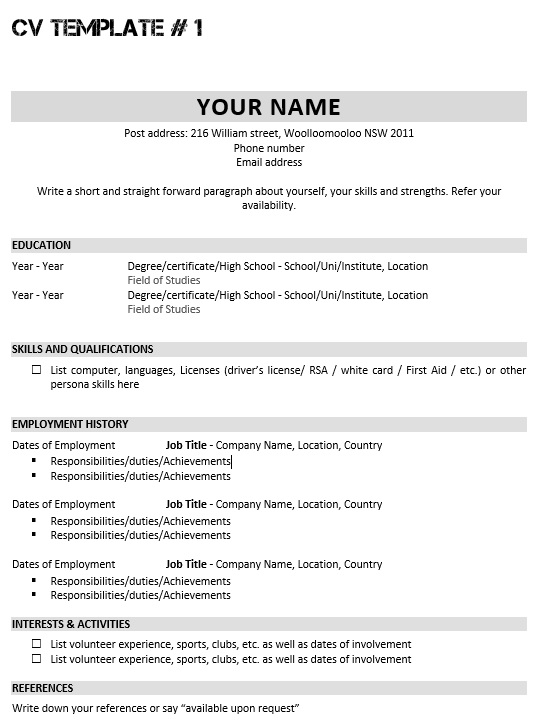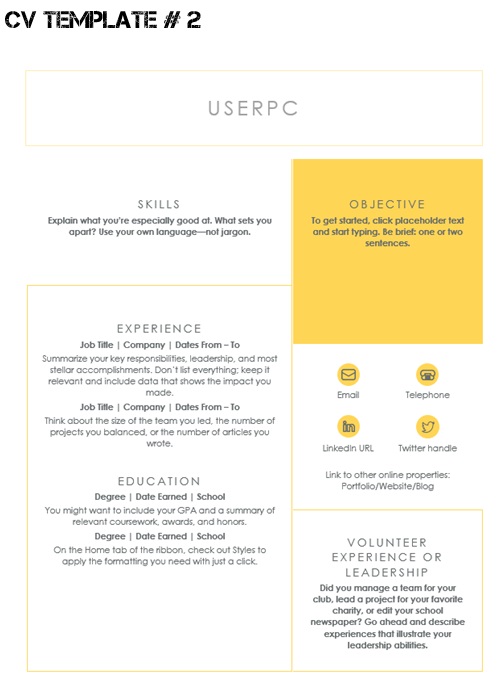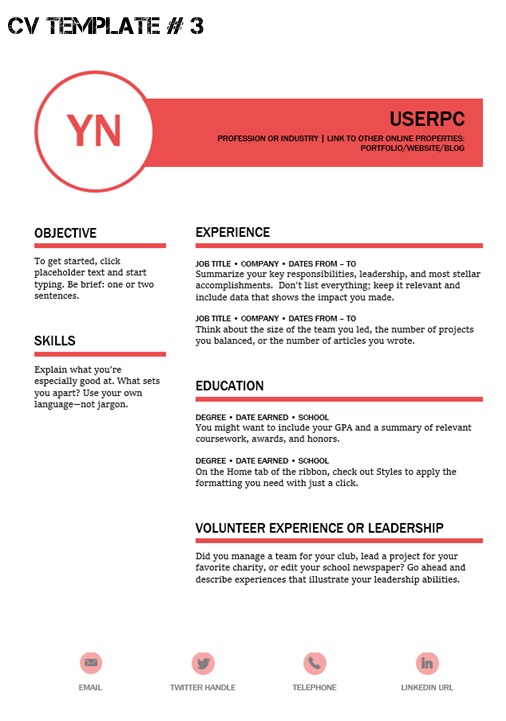Here at Australian Backpackers we have a long history in the Work & Travel industry. We have been supporting backpackers with all their work and job needs for nearly 2 decades. Recently, we have undergone a change in our business meaning we are now focused on organising campervan and motorhome trips for backpackers.
We no longer offer job support services however our documentation as shown below is still available at your convenience.
ONLINE CAMPERVAN BOOKING PLATFORM
We wish you all the luck in landing that dream job in Australia, and for when you’re finished up working or like to explore a little during your holidays, you know where to find us!
We now offer an online campervan booking platform, designed to allow people to search and book their favourite vehicles. Get instant pricing and book online on the brand new Australian Backpackers booking platform.
HOW TO WRITE AN AUSSIE CV
Whether you have no work experience yet and you just finished high school or you have years of work experience in your home country, you would need to have your CV ready if you want to work in Australia.
We advise you to make sure you have your CV ready to go (in English) before you arrive in Australia, so when you arrive you can start applying straight away. Our jobs officers are here to help you with writing your CV as well.
Your CV should not be more than 2 pages in general and your objective has to be straightforward and in general a short story about who you are, what your skills are and your availability.
Below we have posted a few examples on what your CV can look like. Obviously there are many different ways to write your CV and you might want to make a few different ones for different kind of jobs (hospitality or labour work or customer service etc.).
CONTACT DETAILS
When writing down your contact details always make sure you have an Australian mobile number (employers will not likely call to an overseas number to invite you for an interview).
For your address (only if you are a member with us) use our address (and write down it is a post address). You do not want to change your address every time you will change hostels and this will also make it unclear for companies to see where you are.
For your email address, always put your email address on your CV. If you opened an email address years ago and back then you thought it was very funny to use the email address ‘Ilovestrawberrycakesinwinter@gmail.com (for example J), you might want to get a new (more professional) email address.
Add a photo? If you are applying for face-to-face/customer service related jobs it is definitely a good idea to put your photo on your CV. Try to stay away from selfies, drunk photos in the bar or photos with other people in it. It doesn’t have to be a professional passport photo, but something that makes you look representable.
PERSONAL STATEMENT
In the personal statement you write a short paragraph just to get the employers attention so they will read the rest of your CV. In short you need to write why the employer should hire you (without literally writing ‘you should hire me’). Your personal statement could be different per position (one you would write for hospitality might be different than one for construction jobs).
When you can only work for 1 month do not write you are available for 3 months. Companies are pretty good scanning through interviews if you are speaking the truth (gained over years of experience with working with backpackers), but also because you don’t want to waste your time applying for jobs you do not get or waste the companies time.

EDUCATION
Write your education in your CV. Always make sure the last school you have done is at the top. As most studies always start between Augustus and September and finish in July, you can just write the years when you have done these studies.
You do not necessarily need to put in your primary school, as long as you have your high school (and if possible higher education after this) in your CV it is all good. Do keep your education short, as employers will be more interested in your work history than your education.


WORK EXPERIENCE
The same as with education, make sure you put your last job (most recent) at the top and your oldest one at the bottom. Employers are more interested in what you just have done then reading about your part time job you had 10 years ago.
Many people love using bold text in CV’s to have some things point out a bit more. Keep the bold text for your job titles and not for company names. When reading a CV the bold will be most clear to read, and companies do not have any feeling reading a company name of a company they never might have heard of. If you write your job title in bold, at least this will say something to them, and then (if interested) they can always read the company where you have worked at. So keep in mind that Australian companies might not know the companies you have worked for in your home country, so make sure the job title is clear (preferably in bold letter type).
When writing your CV try not to lie. It sounds a bit lame, but it has happened with someone who wrote on his CV that he spoke fluent German and when he worked in the company he had to work with a German colleague (who hardly spoke English) as his new boss thought it would be perfect for him to work with the German guy since his German would be fluent.
You can always make your jobs sound ‘cooler’ and ‘nicer’. When you worked in a supermarket and you were stacking shelves and help customers if they had questions, were you not really being a ‘sales assistant’?
Depending on your experience it is best to put as much in your CV as possible. Even if you do not have any experience and just finished high school, you might have had part time jobs/summer jobs such as flyer delivery, babysitting, helping out at farm, helping family with painting a house, etc. Try to be innovative in describing your previous jobs, so the employer can see that you might not have had that job before, but you do have the skills that could make the job work.
For example if you are applying for a job in a bar and you have no experience, you can write that you have had experience in other jobs with for example ‘cash handling’, ‘customer service’, ‘dealing with enquiries’ and so on.
If you are looking for a job where they expect you to work hard (this could be on a farm, but could also be as a removalist or maybe any other construction job), you can write down things that would show you don’t mind getting your hands dirty. This could be from helping your parents with gardening, feeding animals, to painting houses, to love to ride dirt bikes and hiking.

SKILLS AND QUALIFICATIONS
In this paragraph you put down your skills, such as languages, IT skills, but also if you have your driver’s license, your RSA/white card, tractor license, First Aid or any other certificates that might be handy.

HOBBIES
You do not have to write everything you like to do on weekends or on holidays, but sometimes mentioning a few things could be helpful when applying for jobs. If you apply for a summer camp job it might be very good to mention you love babysitting and you have played soccer for over 5 years.
Volunteer jobs are always a good way to show on your CV.

REFERENCES
It is highly unlikely that Australian companies will call overseas companies for a reference when you have worked there. You can always write down ‘available upon request’.
You do not need to add all your reference letters in your CV. If you do have them, make sure you have them digitally and when a company asks for it, you can always email it to them.
If you write a CV in Word, there are many templates to write a CV in here








